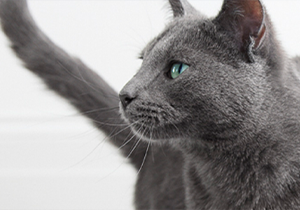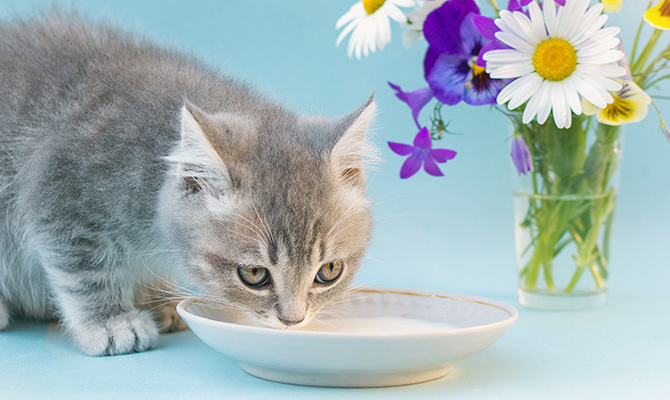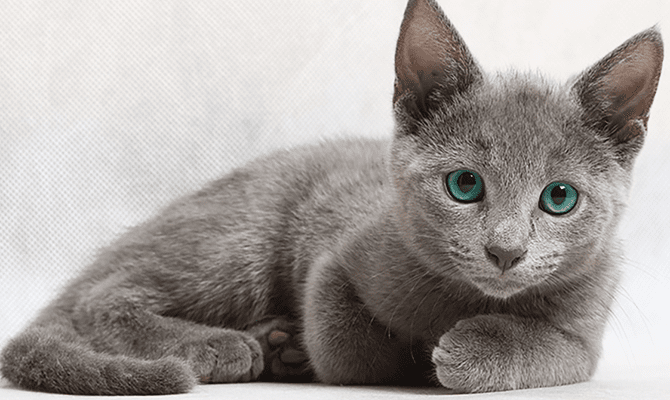Health Issues Of A Fat Cat
From Garfield to the Grumpy Cat, these mystical creatures have been worshipped by netizens, giving them celebrity status.
Not only have cats rocked virtual platforms like Facebook and Instagram, but they have been making headlines for being trendsetters too, in current times. And one of the most popular cat trends is that of the ‘chonky boi’, or, overweight cats, who have clawed their way into our hearts with their fluffy appearance and caused cat owners to go gaga over these chubby felines. However, although chubby cats look incredibly adorable, making cat owners wish their cats to be equally chunky, this negative health trend can have a severely detrimental effect on the cats’ quality of life. Obesity in cats is pretty common and it can lead to several obese cat health problems.
What does obesity in cats mean?
Cats are popularly known for their love of food, and since they are often unable to restrict themselves from overeating, it is frequent for cats to grow obese or overweight. In 2018, almost 56 million cats around the world were found to have been suffering from obese cat health problems, making it the leading form of malnutrition in cats. Depending on its breed, though the weight of cats is supposed to differ at various points in its life, a cat is generally considered obese when it weighs 20% more than what it should optimally weigh. Presently, obesity in cats is categorised as a disease that might gravely affect their general lifestyle and longevity, and can also lead to serious overweight cat problems.
Can cats be overweight?
Despite popular belief, overweight cats and obese cats cannot be grouped under the same category. While obese cats are weighed at over 20% of the ideal body weight of that particular breed at a specific stage, a cat can be called overweight if it has 10-20% more body weight than it is supposed to have for its breed and stage. Though it cannot be manually determined if your cat is obese or overweight, as a cat parent, you can easily tell if your kitty is getting chubby by running your fingers along its side. If you cannot feel its bones or ribs, you should check with your vet.
Symptoms of Obesity in Cats
-
Difficulty in jumping and climbing
Cats are extremely skilful and agile on their legs, allowing them to run, pounce, and jump with ease. Hence, difficulty in jumping and climbing is one of the overweight cat problems that is easily noticeable. With their body weight considerably higher than their ideal weight, chubby felines will have difficulty jumping and climbing.
-
Loss of visible waistline
Cats are often characterized by their graceful, slender waistline that allows them to easily navigate narrow spaces without getting obstructed by their waistline. However, if your kitty is getting overweight, it might start developing a visible waistline caused by an accumulation of fat.
-
Unable to feel cat’s rib cage
One of the easiest ways to tell if your feline buddy is getting chubby is by running your fingers along its sides and feeling for its ribs. The ribs can be easily felt over the fur in a cat with an ideal body weight. Feeling the ribs will be difficult in overweight cats and cannot be felt at all in obese cats as the ribs are often covered by a layer of accumulating fat.
-
Dirty/messy hair coat
Cats are extremely tidy pets, who prefer to groom themselves clean. These adorable feline munchkins can bend in every other direction, licking every part of their body spotlessly clean. However, obesity often takes away this flexibility in cats, making them unable to access every part of their body. So, dirty and messy hair coat is another overweight cat problems.
-
Less frequent bowel movements
Gastroenteric and bowel problems are some of the leading reasons behind feline obesity. In cases when the accumulated fat causes a drag on the digestive tract, cats are not able to relieve themselves as frequently as they are supposed to, leading to a gastrointestinal build-up. Your kitty might be overweight or obese if it has fewer bowel movements than usual.
-
Unwilling to get up and move around
Cats are known for being playful and energetic. However, due to their increased body weight, obese cats are unable to keep themselves mobile without spending excessive energy. So, obese cats often appear lethargic and are unwilling to get up and move around.
Causes of obesity in cats
Mentioned below are some of the leading causes of obesity in our fat cat buddies before we discuss the best tips for obese cats.
-
Not exercising
Lack of exercise can quickly lead to an accumulation of fat in a cat’s body, leading to them becoming overweight or obese.
-
Environment
Environment plays a vital factor in determining if a cat is going to be obese. In the wild, cats have to hunt down their food requiring rigorous physical mobility, causing them to stay lean. However, when confined indoors, cats become obese due to a lack of physical activity.
-
Underlying health condition
Metabolic and endocrinal disorders, as well as a weak immune system, can cause obesity in cats. Neutering can also sometimes lead to unprecedented weight gain.
-
Type of diet
Though cats are carnivores who depend on animal fat and meat, cat overeating or ingesting high-caloric food without sufficient physical exercise can be a leading reason for feline obesity.
-
Excess serving proportion

While your royal feline will appreciate excess serving portions every time they eat, it can often lead to indigestion, or cause your kitty to gain weight rapidly.
-
Rapid food consumption
Most working cat parents opt for free feeding their cats as it is convenient. However, since most cats are unable to restrict themselves from food cat overeating because of free feeding, leading to obesity, is pretty common.
-
Excessive treats
Cat treats can be used for training purposes, to encourage good behavior, or simply to show your cat some love and affection. However, it's important to feed them in moderation, as overfeeding treats can lead to obesity and other health problems.
Health risks associated with overweight or obese cats
Here are some obese cat health problems:
- Diabetes
- Compromised immune system
- Liver failure
- Heart diseases
- Breathing problems
- Dystocia (Birthing problems)
How to get a cat to lose weight
Find out the best tips for overweight cats and help your fat cat friend to lose some extra pounds.
-
Calorie controlled diet
Since a high caloric intake is one of the leading reasons behind feline obesity, why not try to nip the problem in the bud by choosing a calorie-controlled diet for your feline? You can introduce your kitty to a calorie-controlled diet consisting of home-cooked food, such as beef and chicken. Opting for wet cat food will also help your kitty stay well-hydrated all day long, in addition to receiving all essential nutrients. Here’s one of the best tips for fat cats - since cat treats have a high caloric content, you also need to cut them down for the best results.
-
Feeding schedule
Free feeding involves laying out dry cat food in bulky amounts in a place that is easily accessible to your kitty, allowing them to have a bite whenever they want. Cat parents often free-feed their cats since it is convenient. However, since cats cannot always resist food, they tend to overeat, causing obesity. Instead, among the most helpful tips for obese cats is to stick to a strict feeding schedule to help your cat lose some excess weight and stay in shape. Special food dispensers are also available that release controlled portions of food as per schedule, thus preventing overeating.
-
Increased physical activity
If your cat is obese, one of the best ways for it to lose some extra weight is through physical activities such as running and jumping. Regular exercise can help your cat burn some excess calories and stay in shape. Though the options for physical activity are limited for indoor cats, installing an exercise wheel can be a great option. In addition, you can also keep your cat physically engaged by playing games like fetch with them.
-
Medication
Obesity in cats can also be treated through medications, but usually are considered a last resort when your kitty is unable to lose weight through other organic processes or has started to show symptoms of serious health concerns. Drugs, such as Bupropion-naltrexone, Orlistat and Liraglutide have been known for their effectiveness in battling feline obesity. However, these medications should only be used if they have been authorised by a veterinarian and in limited dosage.
-
Consulting vet
If your cat is getting overweight, one of the first things you should do is consult a veterinarian. This is because feline obesity can also be caused by some serious underlying diseases, such as hypothyroidism which might require immediate medical attention. Furthermore, visiting a vet will also allow you to determine if your cat needs to start a special diet session or have medications to help it lose weight.
Health Risks of Overweight Cats FAQs
-
What should a cat eat?
Cats’ diet mostly consists of animal fats and proteins. So, it is usually advised to offer your kitty home-cooked beef, chicken, or turkey. However, you can also switch to wet or dry cat food containing the essential nutrients for felines.
-
If I spay or neuter my cat, will it cause them to gain weight?
It is not uncommon for cats to gain weight after getting neutered. This is because spaying usually reduces a cat’s drive to actively look for a mate, making it physically less active. Though it is highly recommended to get your feline friend spayed, it is likely to become a fat cat over time.
-
How do I make sure my indoor cat gets enough exercise?
Indoor kitties don’t get enough exercise. So, one of the best tips for fat cats to get enough physical exercise indoors is to install an exercise wheel which allows your feline buddy to stay active and have fun while playing.
-
Are obese cats depressed?
Felines are immensely affectionate and playful and thrive best with an active lifestyle. However, there are many obese cat health problems that may make your cat unable to keep up with its lifestyle, causing them to feel stress and anxiety.
-
Should I see my veterinarian before starting a weight loss plan?
Cats are ideally supposed to have different weights depending on their breed and age. So, it is always one of the best tips for obese cats to see a veterinarian and get professional advice before starting a weight loss plan.








